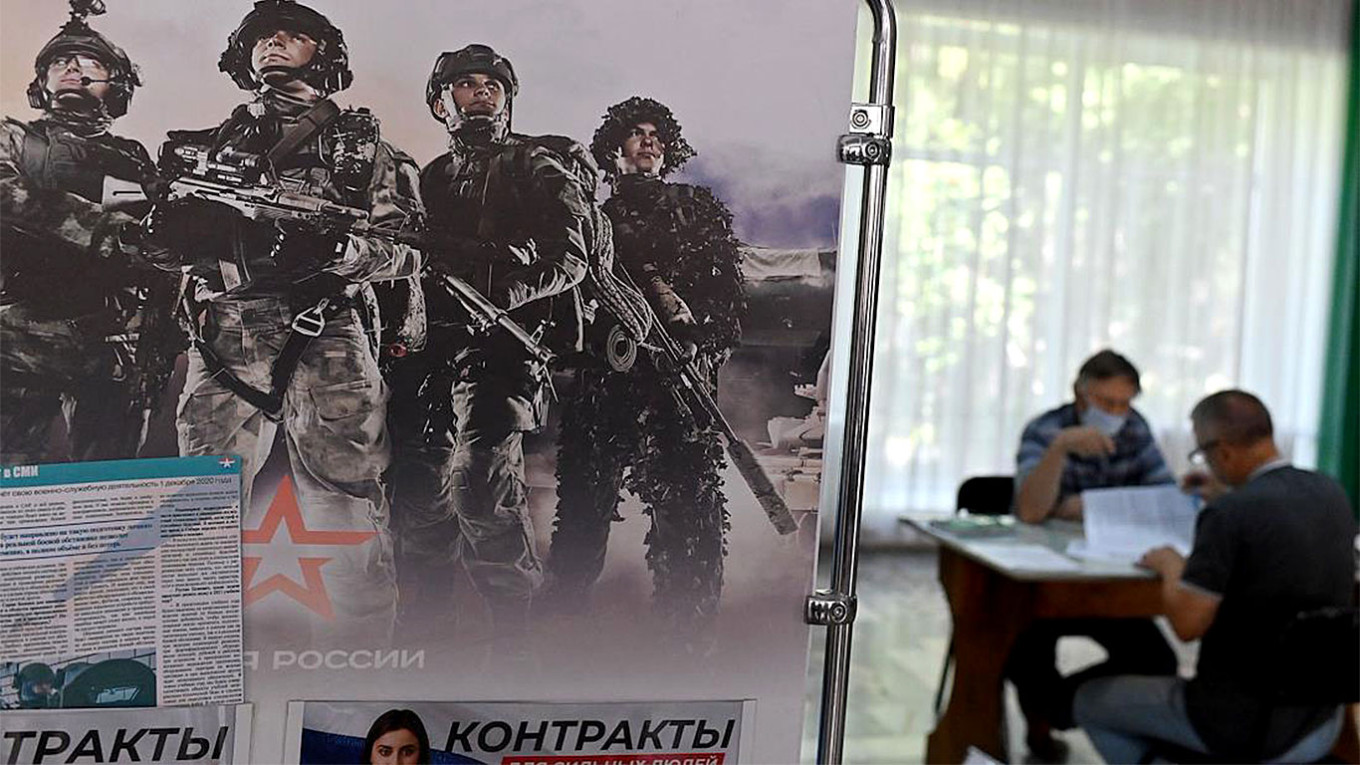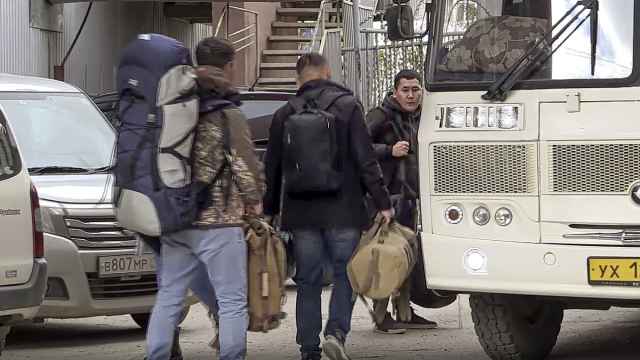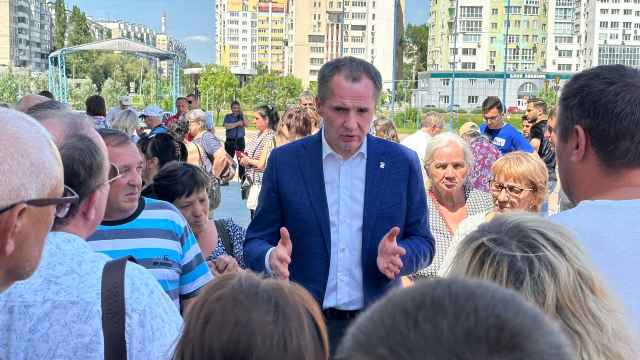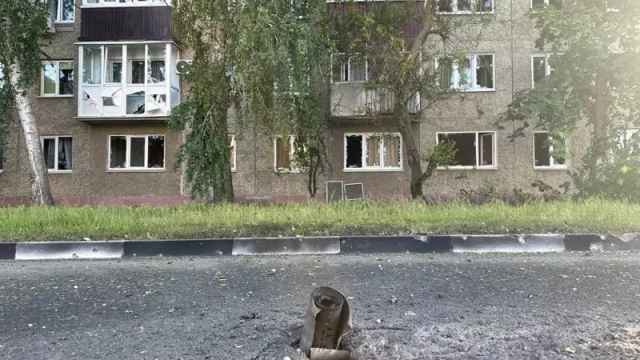At least two dozen Russian regions have formed 40 volunteer units made up of thousands of their residents in efforts to ease Moscow’s manpower shortage in Ukraine, the Kommersant business daily reported Monday.
The Kremlin’s recruitment drive aims to generate a battalion of about 400 contract soldiers in each of Russia’s 85 regions for a total of 34,000 fighters heading to the frontlines in Ukraine, the Institute for the Study of War estimated last month.
Kommersant’s report names 19 Russian regions, from St. Petersburg in the northwest to the Primorsky region in the Far East, where local residents have signed up for service.
It does not name the total number of recruited volunteers but estimates that each unit numbers between 90 and 500 local residents.
They are reportedly offered salaries between 130,000 rubles and 300,000 rubles ($2,100-$5,000).
The report is based on local media reports and social media announcements by regional authorities since the spring of 2022.
Observers say regional battalions take inspiration from units loyal to Chechen leader Ramzan Kadyrov, who is believed to enjoy free rein in leading his southern Russian region in exchange for loyalty to the Kremlin.
The Kremlin remains unwilling to announce a general mobilization despite its significant reported losses in Ukraine. Instead, it is widely reported to be seeking to rush men to the front by reducing training requirements, offering large sign-up bonuses and greenlighting initiatives like regional battalions.
Russian media has also widely reported that the notorious Kremlin-linked Wagner mercenary group has been recruiting fighters across Russian prisons.
Military analysts have said that units from Russia’s ethnic republics could be particularly vulnerable to mutinies or could spark political instability when they return home from the fighting.
Asked if region-specific military units would be problematic after Russia's "special military operation" in Ukraine ends, Kommersant quoted an unnamed federal official as saying:
"It's the principle of lesser evil. The fight will continue for a long time and in different directions."
A Message from The Moscow Times:
Dear readers,
We are facing unprecedented challenges. Russia's Prosecutor General's Office has designated The Moscow Times as an "undesirable" organization, criminalizing our work and putting our staff at risk of prosecution. This follows our earlier unjust labeling as a "foreign agent."
These actions are direct attempts to silence independent journalism in Russia. The authorities claim our work "discredits the decisions of the Russian leadership." We see things differently: we strive to provide accurate, unbiased reporting on Russia.
We, the journalists of The Moscow Times, refuse to be silenced. But to continue our work, we need your help.
Your support, no matter how small, makes a world of difference. If you can, please support us monthly starting from just $2. It's quick to set up, and every contribution makes a significant impact.
By supporting The Moscow Times, you're defending open, independent journalism in the face of repression. Thank you for standing with us.
Remind me later.






